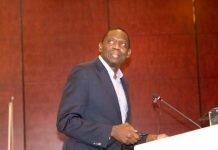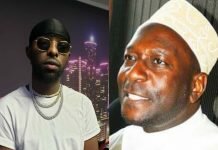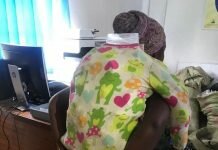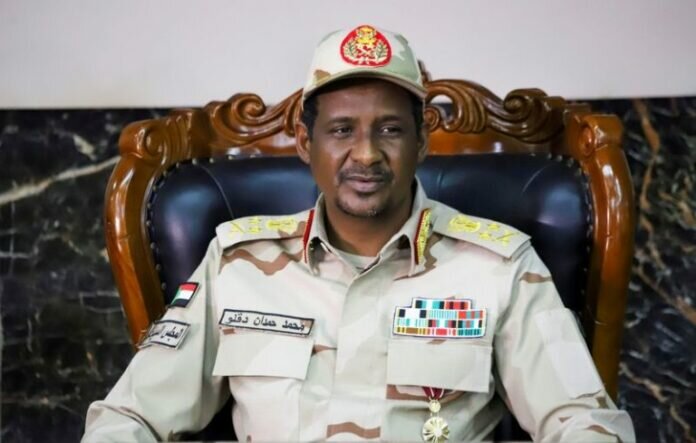The Sudanese army says a paramilitary group headed by General Mohamed Hamdan Dagalo has mobilised its forces in the capital, Khartoum, and other cities, a move that raises the prospect of confrontation with the armed forces
He is the commander of one of Sudan’s most prominent paramilitary forces. He is also the deputy leader of Sudan’s ruling council, which took power after a coup by the army and RSF in late 2021
He leaves a trail of human rights abuse allegations from Darfur in his wake and has recently been accused of allowing those same forces to kill demonstrators in Khartoum.
Hemeti has said that the use of force was necessary in Darfur. he also defended the violence suppressing the protesters, explaining they had been infiltrated by rogue elements and drug dealers, and firm action was warranted.
“We will not allow chaos and we will not go back on our convictions,” he said. “There is no way back. We must impose the respect of the country by law.”
Hemeti was a close political ally of Sudan’s former President Omar al-Bashir, but as protests against the former leader escalated in December, his loyalty soon wavered. When demonstrations in Khartoum began, Hemeti was the first high-ranking official to express his support, telling the government to “provide services and decent living to the people”.
He said “the corrupt, whoever they are, should be referred to justice,” the state-owned Sudanese News Agency reported on 25 December. Hemeti switched sides to force the president out of power on 11 April and was named vice-president of Sudan’s Transitional Military Council (TMC) two days later.
Why is he so powerful?
Although the TMC’s president is Abdel Fattah al-Burhan, Hemeti is the one at the forefront of negotiations with Western diplomats. He is reportedly supported by the politicians who created the Janjaweed, the militia comprising of Arab groups who sowed fear into residents of the Darfur region of western Sudan during the conflict there.
Another factor behind Hemeti’s power is his support from regional allies: Egypt, Saudi Arabia and the United Arab Emirates.
Stability in Sudan is in their interest and they are very unlikely to impose sanctions on the TMC. However, Saudi Arabia has said it is concerned with developments in the region and urged the two sides to engage in dialogue.
According to Al Jazeera, Hemeti went to meet Saudi Arabia’s crown prince Mohamed Bin Salman earlier in May, promising to support the country against “all threats and attacks from Iran and Houthi militias” and to continue sending Sudanese troops to help the Saudi-led coalition in Yemen.
It would be in the Saudi prince’s interest to return the favour and maintain a strong relationship with Hemeti.
Camel trader to warlord
Hemeti grew up in a Chadian Arab clan, fleeing war to live in Darfur in the 1980s.
War in Darfur broke out in 2003, when marginalised black African clansmen in the region formed a rebel movement against the government. The army fought back, joined by paramilitary forces including the infamous Janjaweed, who were accused of riding their camels and horses into villages, killing the men, raping the women and stealing whatever they could find.
Hemeti’s uncle is Juma Dongolo, a chief of one of the Arab groups which span the Chad-Sudan border. Hemeti himself dropped out of primary school to trade camels and also offered security to commercial convoys in Darfur during the conflict. He was a savvy businessman and soon became rich.
In 2003, as the Darfur rebellion began to gather momentum, Hemeti helped mobilise clansmen to fight alongside government forces. This earned him the support of President Bashir.
He became leader of the Border Guards, a group of Darfur militias supporting the government. In 2013, the Rapid Support Forces (RSF) was formed to help regular forces fight rebels in Darfur. A year later, the group was recognised by the government as a “regular force”, but critics say it is merely a reincarnation of the Janjaweed.
Sudan has been suffering a political crisis since the Sudanese army commander Abdel Fattah Al-Burhan declared a state of emergency in October 2021 and dissolved the sovereign council as well as the government.
In December 2022, Sudan’s military and civilian leaders signed a political framework agreement to end the political impasse and institute a two-year transitional civilian authority, but the two sides have so far failed to transform the agreement into a final deal.
They agreed on most of the issues, except for those relating to reforms of the security and military forces, under which the RSF and other armed factions would be integrated into the Sudanese army.
BBC










































